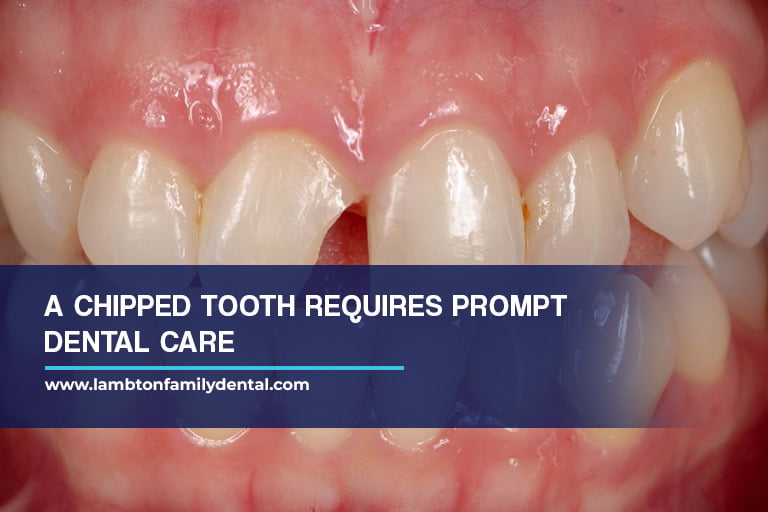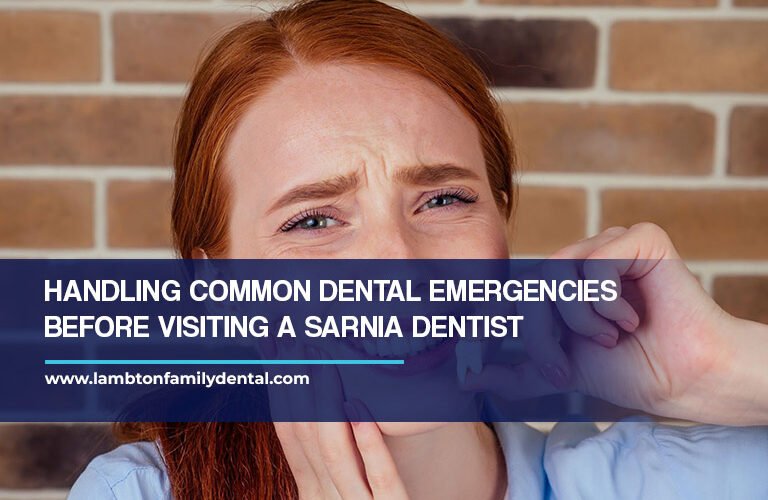While a dental emergency can come in different forms, knowing what to do before going to the Sarnia dentist can make a great difference. Dealing with a serious dental problem quickly can keep your smile, health, and money safe.
What Constitutes a Dental Emergency?

Knowing what counts as a dental emergency and what can wait is crucial. Here are some situations that may require immediate attention:
- Severe, persistent tooth pain
- Damaged or broken tooth
- Loose or missing permanent tooth
- Loose or lost fillings, crowns, or dental appliances
- Injury to the lips, cheeks, tongue, or jaw
- Swollen, infected, or abscessed gums
- Persistent bleeding gums
Why You Never Ignore a Dental Emergency
Neglecting a dental crisis can lead to more serious problems. It does not only affect your dental health but also your general health.
Tooth Loss
If a dental emergency isn’t handled fast, you might lose a tooth. For example, if a tooth gets knocked out or loosened from an injury, you need to act right away to save it. Waiting too long could mean you can’t put the tooth back or you might need costly treatments to fix the gap.
Pain and Discomfort
Ignoring the pain and delaying treatment might make things worse later on. Infections can spread, broken teeth can harm the gums and tissues, a lost filling can get infected, or a cavity can develop. Getting treatment for your dental problem usually means relief from the pain.
Spread of Infection
Dental infections can spread fast and, in some cases, become life-threatening. If an abscess develops, the infection can spread to the jawbone, neck, or brain. You need quick treatment to stop the infection from worsening and keep you healthy.
Increased Cost
Delaying treatment for a dental emergency can make it costlier. A small issue like a cavity or chipped tooth might need more serious procedures like a root canal or tooth removal. This means spending more money and needing more dental work done.
What to Do During Dental Emergency

Any urgent tooth or gum issue is serious and should be addressed promptly. Neglecting it can worsen the problem and lead to more costly treatment later on. Remember, your dental health is an investment in your overall well-being. Taking quick action now can save you from discomfort and expenses down the road.
Here’s a simple guide on what to do for common dental issues.
Broken or Chipped Tooth
Keep any broken pieces. Rinse your mouth with warm water and clean any broken parts. If there’s bleeding, apply gauze for about 10 minutes or until it stops. Put a cold compress on your cheek or lip near the hurt tooth to make the swelling and pain go down.
Toothache
Use warm water to rinse your mouth. Then, use dental floss to get rid of any stuck food. If your mouth is swollen, put a cold pack on your cheek. Don’t apply aspirin or other painkillers directly to your sore gums.
Knocked Out Tooth
If a tooth falls out, hold it by the part you usually see in your mouth. Rinse the root with water to get rid of the dirt, but never scrub it or remove any tissue. If you can, try putting the tooth back where it belongs, facing the right way. Don’t force it. If you can’t put it back, keep it in your mouth or milk on the way to the dentist. Go to the dentist fast. Teeth knocked out have the best chance of being saved if you see the dentist within an hour.
Lost Crown
If your crown comes off, see your dentist ASAP and bring the crown. If you can’t go right away and the tooth hurts, apply a bit of clove oil with a cotton swab. You can find clove oil at drugstores or in the spice aisle. If you can, put the crown back on after coating it with dental cement, toothpaste, or denture adhesive to hold it in place. Never use super glue!
Mouth Infection
Abscesses are infections that happen around the bottom part of a tooth or between teeth and gums. They’re serious and can harm tissue and nearby teeth. If not treated, the infection might spread to other body parts.
Broken Braces and Wires
If a wire breaks or sticks out and pokes your tongue, cheek, or gum, use a pencil eraser to push it gently. If you can’t move it, cover it with wax, gauze, or cotton until you can see your orthodontist. Avoid cutting the wire to prevent swallowing or inhaling it.
Loose Bands and Brackets
Fix loose braces temporarily with orthodontic wax. Or, put the wax over the braces for cushioning. Visit your orthodontist soon. If a band is loose, keep it and call your orthodontist for a recementing or replacement appointment.
Soft Tissue Injury
Mouth injuries can happen from accidents, falls, or sports. They affect soft tissues like the mouth, cheeks, lips, and tongue. After an injury, it’s important to clean the mouth to remove any debris. You can do this by rinsing with warm water or saline solution to prevent infection. If there’s bleeding, apply pressure with a cloth to stop it. Bleeding usually stops on its own, but if it doesn’t, it could be a sign of a serious issue needing attention. In some cases, stitches may be necessary to stop bleeding, which a dentist can do after assessing the injury.
Being prepared to handle common dental emergencies can mitigate pain and prevent complications. However, a Sarnia emergency dentist is essential for proper diagnosis and treatment. If you find yourself in need of urgent dental assistance or wish to schedule a regular check-up, don’t hesitate to contact Lambton Family Dental at (519) 344-5747 for dental care services. Your oral health and overall well-being are our top priorities, and we’re here to help you achieve a healthy, confident smile.

